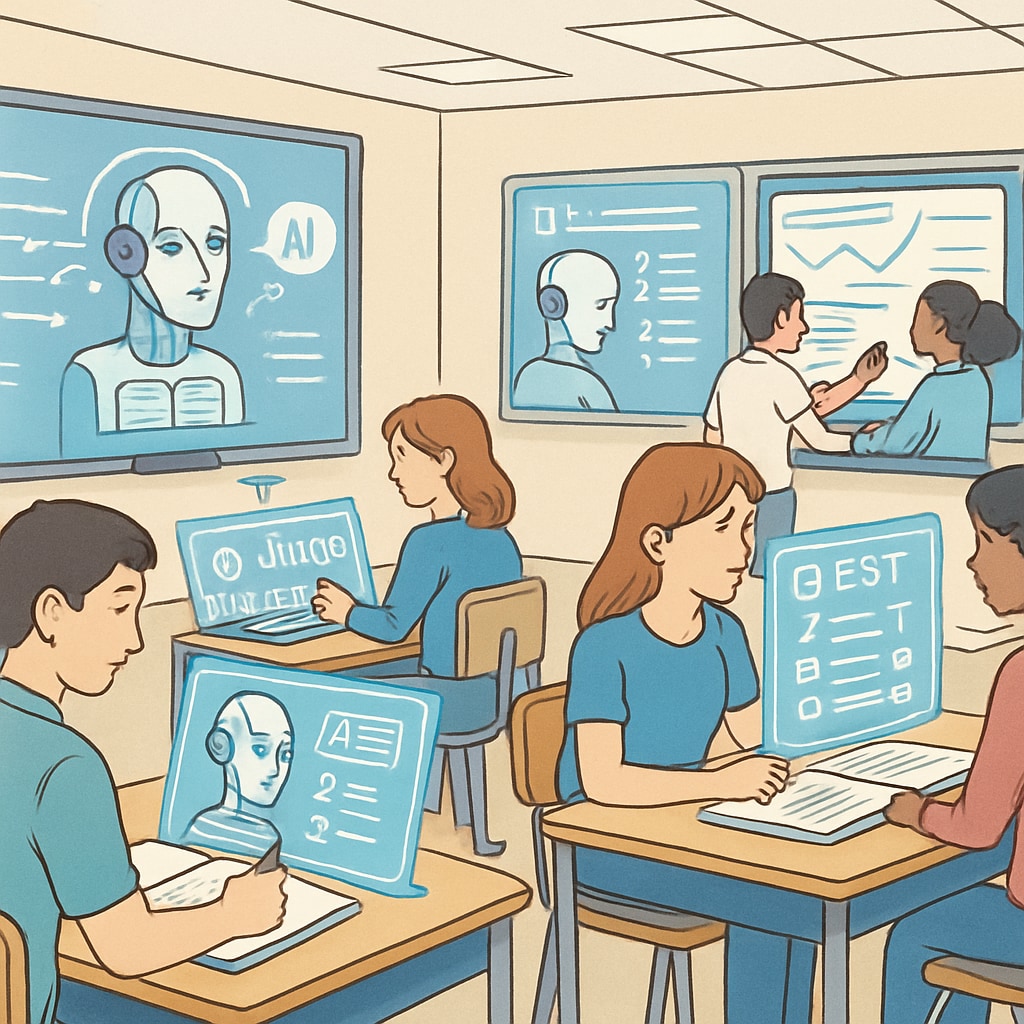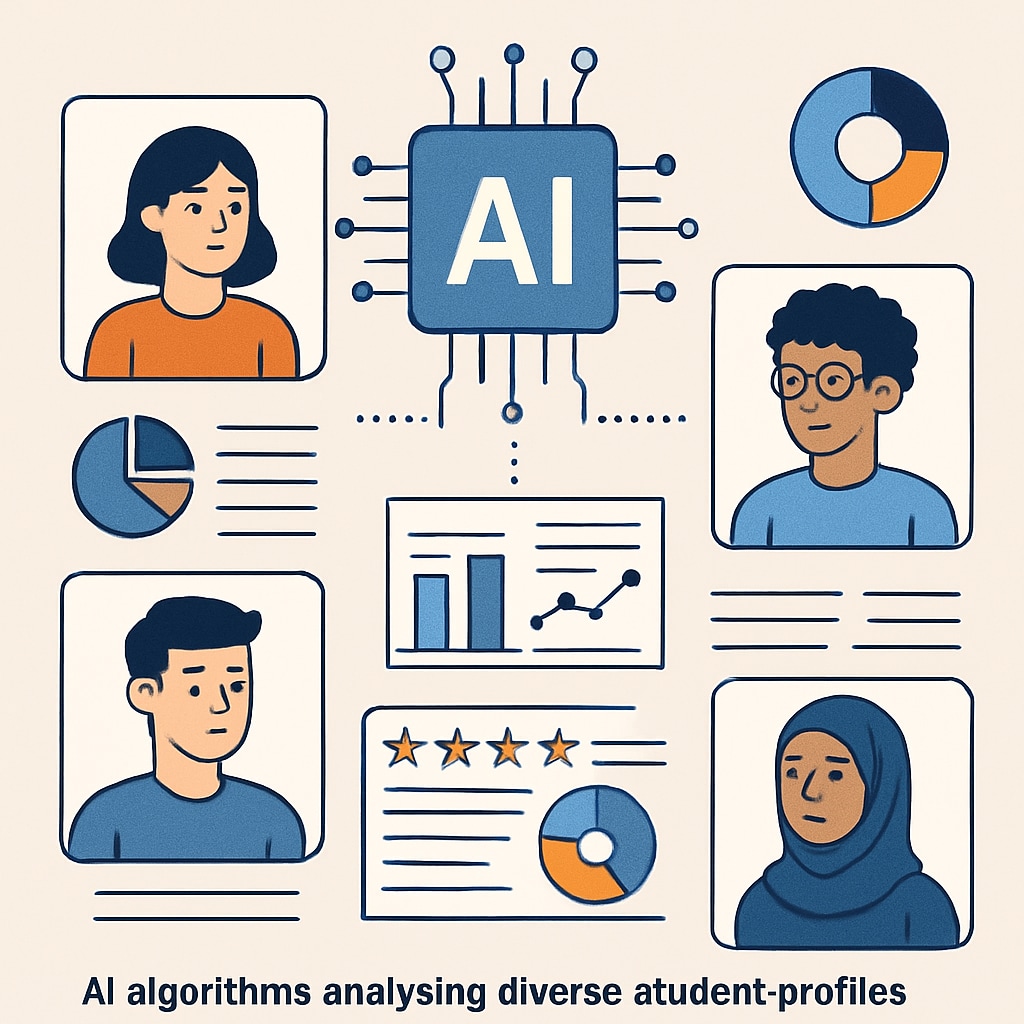With the rapid advancements in artificial intelligence, traditional competitive exams are being challenged in unprecedented ways. The historical reliance on standardized testing for talent selection is increasingly being questioned as we enter an era demanding creativity, adaptability, and innovative thinking. This article delves into the factors driving the need for transformation in K12 education evaluation systems and explores the pathways to reshape talent selection mechanisms for the AI-driven future.
Why Traditional Competitive Exams Fall Short in the AI Era
For decades, competitive exams have been the cornerstone of talent identification worldwide. These tests are designed to measure knowledge retention, logical reasoning, and problem-solving skills. However, the rise of artificial intelligence has exposed inherent limitations in these traditional systems. AI systems today can outperform humans in many areas, such as data analysis, pattern recognition, and even creative problem-solving. As a result, exams that once assessed critical skills may no longer adequately distinguish exceptional human talent.
Furthermore, traditional exams often prioritize rote memorization and rigid problem-solving methods, which are easily replicated by AI systems. This raises a critical question: Are these exams still effective in identifying individuals with unique and innovative abilities—traits that machines cannot replicate?

The Necessity of Reform in K12 Education and Evaluation
The integration of AI into education has already begun to transform K12 systems globally. Tools such as adaptive learning platforms, AI tutors, and personalized learning systems are helping educators tailor instruction to individual students’ needs. However, there remains a disconnect between these advanced learning methods and the outdated evaluation systems that still dominate.
To align with the demands of the AI age, K12 education must adopt a more holistic approach to evaluation. This involves moving beyond standardized tests to incorporate assessments that measure creativity, ethical reasoning, and collaborative skills—qualities that define human intelligence and innovation. For example, project-based learning and portfolio assessments can provide a more comprehensive view of a student’s abilities and potential.
In addition, educators and policymakers must work together to develop frameworks that integrate AI’s capabilities in fair and ethical ways. AI can assist in evaluating diverse skills, reducing grading bias, and offering insights into students’ progress over time. However, it is crucial to ensure that AI does not perpetuate existing inequalities or undermine the human elements of education.
Reimagining Talent Selection in the Artificial Intelligence Era
In the AI-driven world, talent selection mechanisms need to evolve to address new realities. Organizations and educational institutions must prioritize skills that complement AI, such as emotional intelligence, critical thinking, and the ability to navigate complex, unstructured problems.
Several strategies can help redefine talent selection:
- Holistic Assessments: Incorporate diverse evaluation methods, including interviews, portfolios, and group projects, to measure a broader range of skills.
- AI-Augmented Evaluation: Use AI tools to analyze candidates’ problem-solving approaches, adaptability, and creativity in real-world scenarios.
- Focus on Lifelong Learning: Shift the emphasis from one-time exams to ongoing learning and assessment, encouraging individuals to adapt to changing environments.
By implementing these strategies, educators and employers can create systems that recognize and nurture the unique potential of each individual, rather than relying solely on standardized metrics.

Conclusion: Bridging the Gap Between Education and the AI Revolution
As artificial intelligence continues to reshape industries, the need for reform in competitive exams and talent selection is more urgent than ever. Traditional systems must evolve to prioritize the qualities that make humans unique—creativity, empathy, and ethical reasoning—over skills that AI can replicate. By embracing innovative evaluation methods and leveraging AI responsibly, we can build a future where education and talent selection align with the demands of the AI age.
In conclusion, the transition to a new paradigm of talent selection will not be without challenges. However, by reimagining our educational priorities and leveraging the strengths of both human and artificial intelligence, we can create systems that truly prepare future generations for the dynamic challenges of the 21st century.
Readability guidance: This article uses short paragraphs, clear subheadings, and lists to ensure readability. Overarching themes are supported by examples, and the use of active voice enhances clarity.


